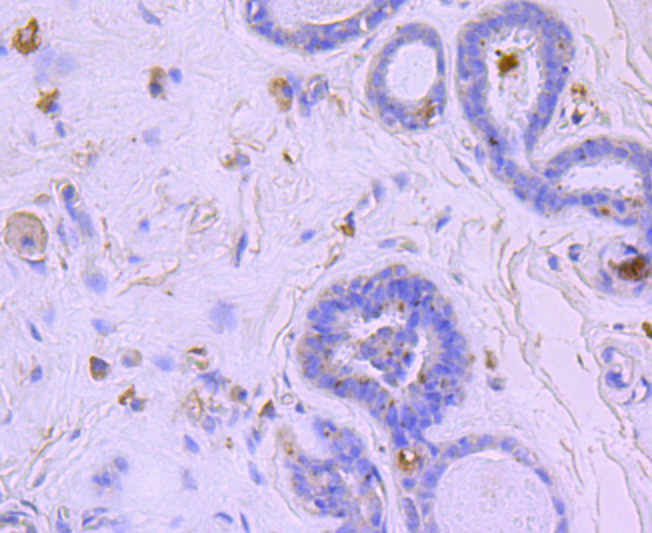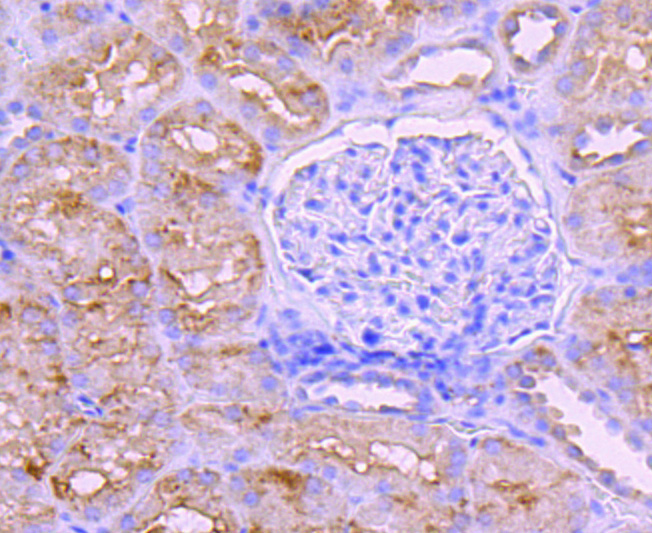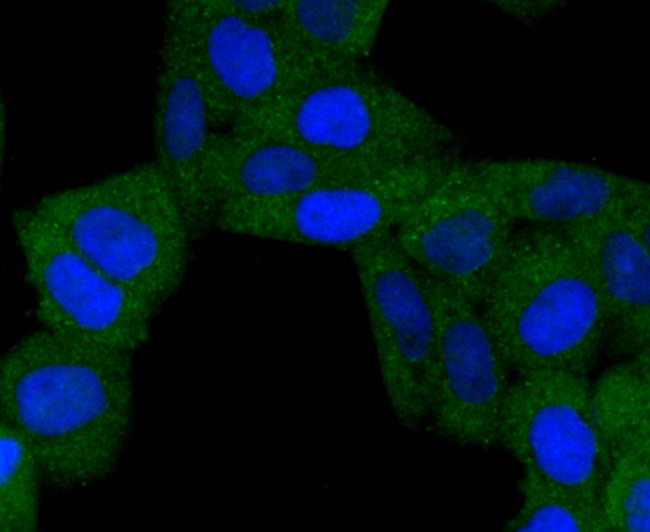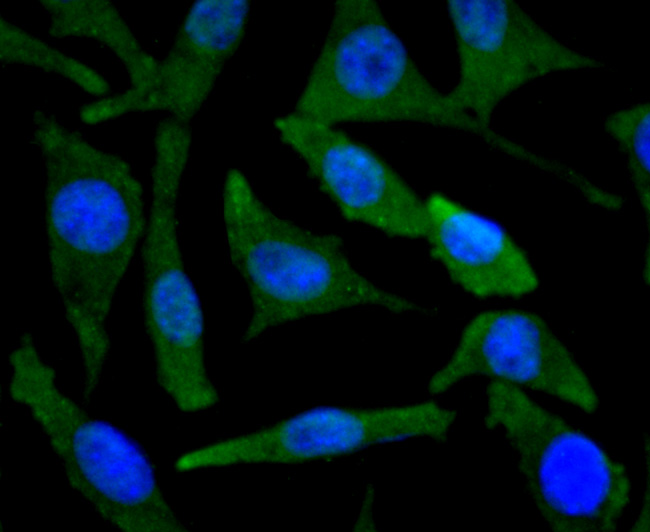Product Detail
Product NameBNIP3 Rabbit mAb
Clone No.JA71-10
Host SpeciesRecombinant Rabbit
Clonality Monoclonal
PurificationProA affinity purified
ApplicationsWB, ICC/IF, IHC
Species ReactivityHu, Ms, Rt
Immunogen Descrecombinant protein
ConjugateUnconjugated
Other NamesBCL2 Adenovirus E1B 19kDa Interacting Protein 3 antibody
BCL2/adenovirus E1B 19 kDa protein interacting protein 3 antibody
BCL2/adenovirus E1B 19 kDa protein-interacting protein 3 antibody
BNIP 3 antibody
BNIP3 antibody
BNIP3_HUMAN antibody
NIP 3 antibody
NIP3 antibody
Accession NoSwiss-Prot#:Q12983
Uniprot
Q12983
Gene ID
664;
Calculated MW21/30 kDa
Formulation1*TBS (pH7.4), 1%BSA, 40%Glycerol. Preservative: 0.05% Sodium Azide.
StorageStore at -20˚C
Application Details
WB: 1:500-1:1,000
IHC: 1:50-1:200
ICC: 1:50-1:200
Western blot analysis of BNIP3 on different cells lysates using anti- BNIP3 antibody at 1/500 dilution. Positive control��
Line 1: Human skeletal muscle
Line 2: Mouse kidney
Immunohistochemical analysis of paraffin-embedded human breast carcinoma tissue using anti-BNIP3 antibody. Counter stained with hematoxylin.
Immunohistochemical analysis of paraffin-embedded mouse brain tissue using anti-BNIP3 antibody. Counter stained with hematoxylin.
Immunohistochemical analysis of paraffin-embedded human colon cancer tissue using anti-BNIP3 antibody. Counter stained with hematoxylin.
Immunohistochemical analysis of paraffin-embedded human kidney tissue using anti-BNIP3 antibody. Counter stained with hematoxylin.
ICC staining BNIP3 in Hela cells (green). The nuclear counter stain is DAPI (blue). Cells were fixed in paraformaldehyde, permeabilised with 0.25% Triton X100/PBS.
ICC staining BNIP3 in SH-SY5Y cells (green). The nuclear counter stain is DAPI (blue). Cells were fixed in paraformaldehyde, permeabilised with 0.25% Triton X100/PBS.
ICC staining BNIP3 in NIH-3T3 cells (green). The nuclear counter stain is DAPI (blue). Cells were fixed in paraformaldehyde, permeabilised with 0.25% Triton X100/PBS.
The adenovirus E1B protein is a viral homolog of the Bcl-2 family of proteins that are involved in regulating cell death. A family of interacting proteins, which are designated Nip or Bnip and include BNIP-1, BNIP-2, BNIP-3 and Nix, associate with both the E1B protein and Bcl-2 proteins to mediate apoptotic signaling. BNIP-1 contains a hydrophobic transmembrane domain, which enables its localization to the nuclear envelope, endoplasmic recticulum and mitochondria. BNIP-2, (previously designated Nip2 and Nip21 in human and mouse respectively), shares homology with the non-catalytic domain of Cdc42 GTPase-activating protein (Cdc42GAP). Through binding to Cdc42GAP, BNIP-2 enhances the GTPase activity of Cdc42GAP, facilitating the hydrolysis of GTP bound to Cdc42 and thereby, mediating the signaling pathways involving receptor kinases, small GTPases and apoptotic proteins. Nix, which is also designated Nip3L or Bnip3L, is highly related to BNIP-3, and both proteins localize to the mitochondria where they associate with Bcl-2 proteins. BNIP-3 preferentially binds to Bcl-xL and induces apoptosis by suppressing the anti-apoptosis activity of Bcl-xL.
If you have published an article using product 49520, please notify us so that we can cite your literature.










 Yes
Yes



